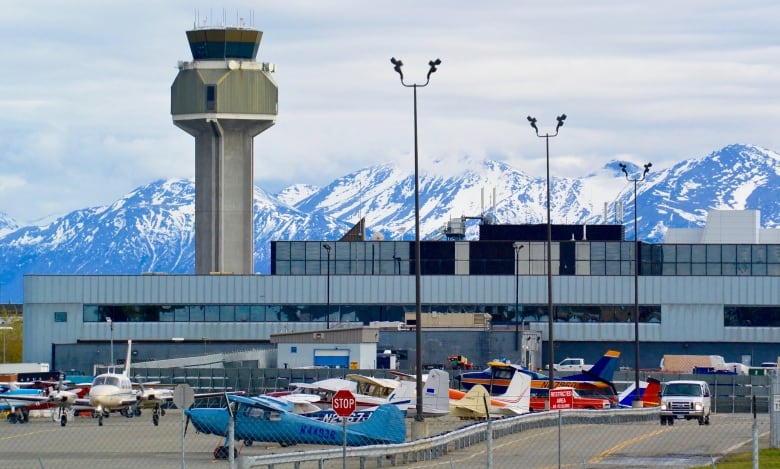NEW YORK (AP) — Bitcoin topped $98,000 for the first time Thursday, extending a streak of record after record highs since the U.S. presidential election. The cryptocurrency has rocketed more than 40% in just two weeks.
Now, bitcoin is at the doorstep of $100,000, just two years after dropping below $17,000 following the collapse of crypto exchange FTX. The recent, dramatic rally arrives as industry players expect the incoming Trump administration to bring a more “crypto-friendly” approach toward regulating the digital currency.
Bitcoin traded as high as $98,349 early Thursday, according to CoinDesk, and was slightly below that level at 1:25 p.m. ET.
As with everything in the volatile cryptoverse, the future is impossible to know. And while some are bullish, other experts continue to warn of investment risks.
Here’s what you need to know.
Back up. What is cryptocurrency again?
Cryptocurrency has been around for a while now. But, chances are, you’ve heard about it more and more over the last few years.
In basic terms, cryptocurrency is digital money. This kind of currency is designed to work through an online network without a central authority — meaning it’s typically not backed by any government or banking institution — and transactions get recorded with technology called a blockchain.
Bitcoin is the largest and oldest cryptocurrency, although other assets like ethereum, tether and dogecoin have also gained popularity over the years. Some investors see cryptocurrency as a “digital alternative” to traditional money — but it can be very volatile, with its price reliant on larger market conditions.
Why is bitcoin soaring?
A lot of the recent action has to do with the outcome of the U.S. presidential election.
Crypto industry players have welcomed Trump’s victory, in hopes that he would be able to push through legislative and regulatory changes that they’ve long lobbied for — which, generally speaking, aim for an increased sense of legitimacy without too much red tape.
Trump, who was once a crypto skeptic, recently pledged to make the U.S. “the crypto capital of the planet” and create a “strategic reserve” of bitcoin. His campaign accepted donations in cryptocurrency and he courted fans at a bitcoin conference in July. He also launched World Liberty Financial, a new venture with family members to trade cryptocurrencies.
How of this will actually pan out — and whether or not Trump will successfully act quickly on these promises — has yet to be seen.
“This is not necessarily a short-term story, it’s likely a much longer-term story,” Citi macro strategist David Glass told The Associated Press last week. “And there is the question of how quickly can U.S. crypto policy make a serious impact on (wider adoption).”
Adam Morgan McCarthy, a research analyst at Kaiko, thinks the industry is craving “just some sort of clarity.” Much of the approach to regulating crypto in the past has been “enforcement based,” he notes, which has been helpful in weeding out some bad actors — but legislation might fill in other key gaps.
Gary Gensler, who as head of the Securities and Exchange Commission under President Joe Biden has led a U.S. government’s crackdown on the crypto industry, penalized a number of crypto companies for violating securities laws. Gensler announced Thursday that he would step down as SEC chair on Jan. 20, Inauguration Day.
Despite crypto’s recent excitement around Trump, McCarthy said that 2024 has already been a “hugely consequential year for regulation in the U.S.” — pointing to January’s approval of spot bitcoin ETFs, for example, which mark a new way to invest in the asset.
Spot ETFs have been the dominant driver of bitcoin for some time now — but, like much of the crypto’s recent momentum, saw record inflows postelection. According to Kaiko, bitcoin ETFs recorded $6 billion in trade volume for the week of the election alone.
In April, bitcoin also saw its fourth “halving” — a preprogrammed event that impacts production by cutting the reward for mining, or the creation of new bitcoin, in half. In theory, if demand remains strong, some analysts say this “supply shock” can also help propel the price long term. Others note it may be too early to tell.
What are the risks?
History shows you can lose money in crypto as quickly as you’ve made it. Long-term price behavior relies on larger market conditions. Trading continues at all hours, every day.
At the start of the COVID-19 pandemic, bitcoin stood at just over $5,000. Its price climbed to nearly $69,000 by November 2021, during high demand for technology assets, but later crashed during an aggressive series of Federal Reserve rate hikes. And in late 2022 collapse of FTX significantly undermined confidence in crypto overall, with bitcoin falling below $17,000.
Investors began returning in large numbers as inflation started to cool — and gains skyrocketed on the anticipation and then early success of spot ETFs. But experts still stress caution, especially for small-pocketed investors. And lighter regulation from the coming Trump administration could mean less guardrails.
While its been a big month for crypto — and particularly bitcoin, which McCarthy notes has set record highs for ten of the last 21 days — there’s always risk for “correction,” or seeing prices fluctuate back down some. Some assets may also have more restrictions than others.
“I would say, keep it simple. And don’t take on more risk than you can afford to,” McCarthy said — adding that there isn’t a “magic eight ball” to know for certain what comes next.
What about the climate impact?
Assets like bitcoin are produced through a process called “mining,” which consumes a lot of energy. Operations relying on pollutive sources have drawn particular concern over the years.
Recent research published by the United Nations University and Earth’s Future journal found that the carbon footprint of 2020-2021 bitcoin mining across 76 nations was equivalent to the emissions from burning 84 billion pounds of coal or running 190 natural gas-fired power plants. Coal satisfied the bulk of bitcoin’s electricity demands (45%), followed by natural gas (21%) and hydropower (16%).
Environmental impacts of bitcoin mining boil largely down to the energy source used. Industry analysts have maintained that clean energy has increased in use in recent years, coinciding with rising calls for climate protections




































